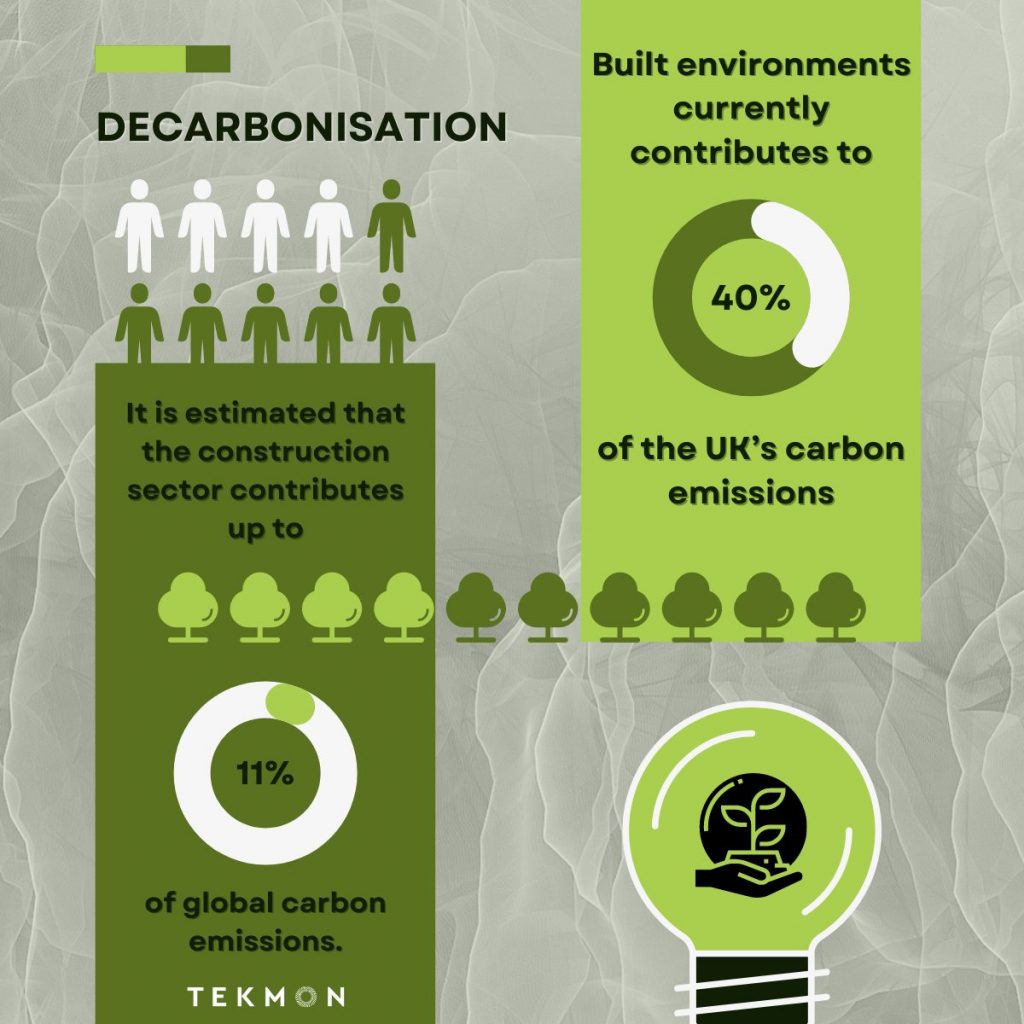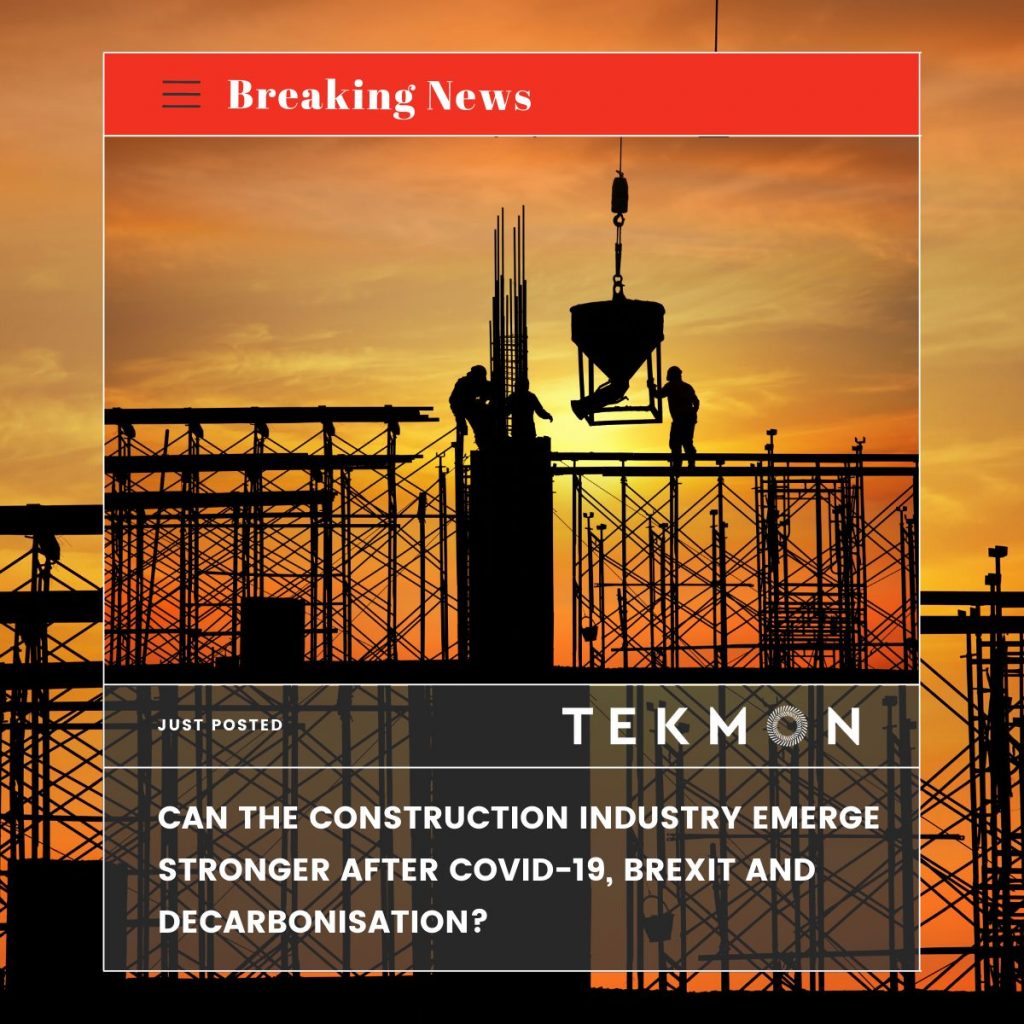The construction industry is one of the industries that felt the effects of Covid19 and the Pandemic. Due to the various issues that have affected trade and travel restrictions and coupled with the fact that many projects have been postponed or even cancelled, businesses are experiencing a significant negative impact on profitability.
The government has set out the plan to cut carbon emissions to zero by 2050, resulting in additional cost burdens for construction companies. Creating energy-efficient homes will also create short-term financial problems for construction companies. Having already felt the strain due to Brexit and the pandemic, construction companies are now having to deal with a new challenge around decarbonisation and building homes that are more energy efficient. Now more than ever, construction businesses will need to adapt and improve their operations to remain competitive and relevant in today’s world.
The Brexit & COVID19 Aftermath
The aftermath of Brexit has caused a shortage of Builders and skilled tradespeople, including carpenters, bricklayers and plasterers across the UK for the construction sector. Building projects are stalling and wages are rising as a result of the labour constraints, while costs are heightened for materials alongside being caught up in the mess of current global supply chains. The UK demand for construction materials from the EU (and beyond) is far outweighing current supply.
Brexit has brought to light how dependent Britain’s construction sector has become on migrant labour to bridge the gaps. Many real life examples have been up in the air in regards to this topic, one that stood out for us was an article in the Financial Times. Where a builder/architect had to ‘dredge a plumber out of sick leave, press gang his brother-in-law into labouring and do the wiring himself.’ in order to get building work on his project completed.
The Blackpool based construction company ‘Create Construction Ltd’ put out a statement that states, “The pandemic has severely affected both our clients and our supply chain’s ability to meet their contractual arrangements. An overrun in projects in both time and budget, a number of supply chain failures and delays to a secured pipeline of projects, has ultimately made the company unviable.” Unfortunately, this company has now gone into administration due to Brexit and Pandemic, highlighting the construction industry is not as profitable as it once was.
Say NO to Co2 and YES to Decarbonisation!
Decarbonisation is the removal or reduction of carbon dioxide (CO2) output into the atmosphere, this is achieved by switching to usage of low carbon energy sources. The construction industry has made significant progress in reducing CO2 emissions but the UK needs to do a lot more in-order to meet the ultimate target of achieving net zero by 2050.
The construction sector is urged to adopt more holistic and efficient building alternatives, to help eliminate carbon emissions due to building sites. The reuse of building materials wherever possible and using non-fossil fuel powered machinery, could be the first few steps in the right direction.

The construction sector has already made real progress; the concrete and cement industry has delivered a 53% reduction in absolute CO2 emissions since 1990, faster than the UK economy as a whole. The journey has just begun and more is required to achieve net zero emissions by 2050.
It goes without saying that companies need to be more efficient even though it may not be the most profitable approach. It may prove to be challenging for construction companies who may already be grappling with company finances, despite it being such a great scheme. Decarbonisation is needed now more than ever, the COP26 also highlights that this is at the forefront of politicians’ minds all around the world.
Remaining Relevant in Today’s World
The Pandemic, Brexit and Decarbonisation are all factors that result in a decrease in margins for the construction sector. However, the construction sector can rediscover its profitability by thinking outside the box. Now more than ever, businesses within the construction sector need to reinvent themselves, building back their businesses in an innovative way.
AVAX Group is a large construction group listed in ATHEX, undertaking private and public sector projects; specialising in power plants, roads, harbours and other infrastructure projects. However, they required solutions to their problem areas. For example, eliminating paper driven processes at worksites, automating safety briefings and inductions and being able to respond to emergencies more efficiently. Through digitization, AVAX were able to find solutions for these limitations, 100+ paper forms used by the health and safety and technical departments were digitized resulting in employees accessing information via mobile phone devices. Briefing and induction materials are now uploaded to a digitized platform, where workers can now view the material assigned to them via their mobile phones, respond to questionnaires and sign all legal disclaimers electronically. Not only this, but 20+ emergency communication protocols have been digitized. This means the system can now reach tens, hundreds or even thousands of recipients with just a press of a button via voice calls, text message and emails.
The outcome of implementing a digitized system has proven to save time on documentation processes by 85-90%, 10-15 min time saved per employee, per shift during briefings and toolbox tasks. Lastly, immediate mobilization of emergency response teams. These results emphasize the need for digitisation on worksites. This can ultimately provide the perfect equilibrium between the government’s demands for a greener construction sector and construction companies wanting to remain relevant in today’s world.
References:

